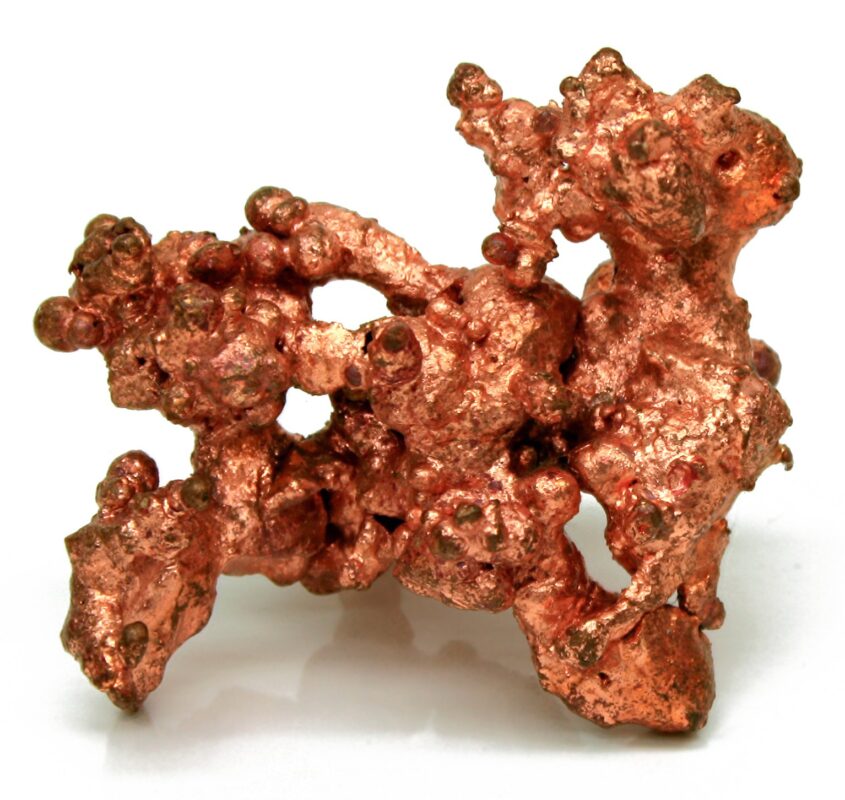The question that has been placed by the International Copper study group (ICSG), while completing a questionnaire, was whether or not we produce Copper in Greece, if this production is primary or secondary, how much do we produce and what is the revenue of the state from such activities. Well let us answer to these questions and discuss the bitter truths of this subject.
- Do we have primary Copper production (from the same mineral sources) in Greece?
The answer is NO, despite the fact that we “could” and according to my opinion we “ought” do so. To start with, it is not being performed a primarily mining of copper-containing ores in our country (copper sulfides, chalcocite etc.), which results in no primary production of copper from the same raw materials.
However, in our country, we do have copper containing (and auriferous) deposits of mixed Sulphide porphyry-type (as those in Chile) with copper concentrations that nowadays are considered as economically exploitable. There is also a forecast for the production of copper-gold concentrate (2.500.000 t) and pure copper (30,000 tons copper/year for the first seven years of opencast copper exploitation and 22,000 tons/years for the next 21 years of underground mining) according to the utilization studies of porphyry copper-gold deposit of Skouries Halkidikis. Provided, of course that will operate a factory for copper enrichment and metallurgy. These estimations refer to the total duration of the project (total estimate of exploitable mine recourses in about 150 million tons of ore with an average of 0.56% Cu content for at least 30 years).
- Do we have secondary Copper production (recycled) in Greece?
The answer is “probably YES” but the state knows nothing further about it, because this recycling is being performed through “Black Recycling” and consequently “Black Metallurgy”, this type of metallurgy that under the guise of recycling is becoming popular but aims to illegal enrichment and having negative results for the Environment, for the public health, for the national economy, for the safety and health of those involved, particularly the foreign workers … while preserving the 100,000 illegal collectors of scrap metal in Athens. Copper thefts in all kinds of constructions or public places have kneeled down bridges and units of the OSE, even water pipes and sewer grates in all municipalities of the country. In yards and foundries of illegal recycling, metallurgy of copper (and cast iron, aluminum, etc.) suffers … Foundries continue washing out the traces of this crime leaving the Greek state watching silently.
At that point, we need to separate the above mentioned illegal activities from the contribution of legal companies that work at the field of copper manufacturing (e.g HALCOR) and those companies that are legally active in collection, marketing and export of recycled materials, which however many times result in being involved in the trafficking of illegal Metallurgy.
Dr. Peter Jeffers, Professor at NTUA-writer, director of MRPEE

